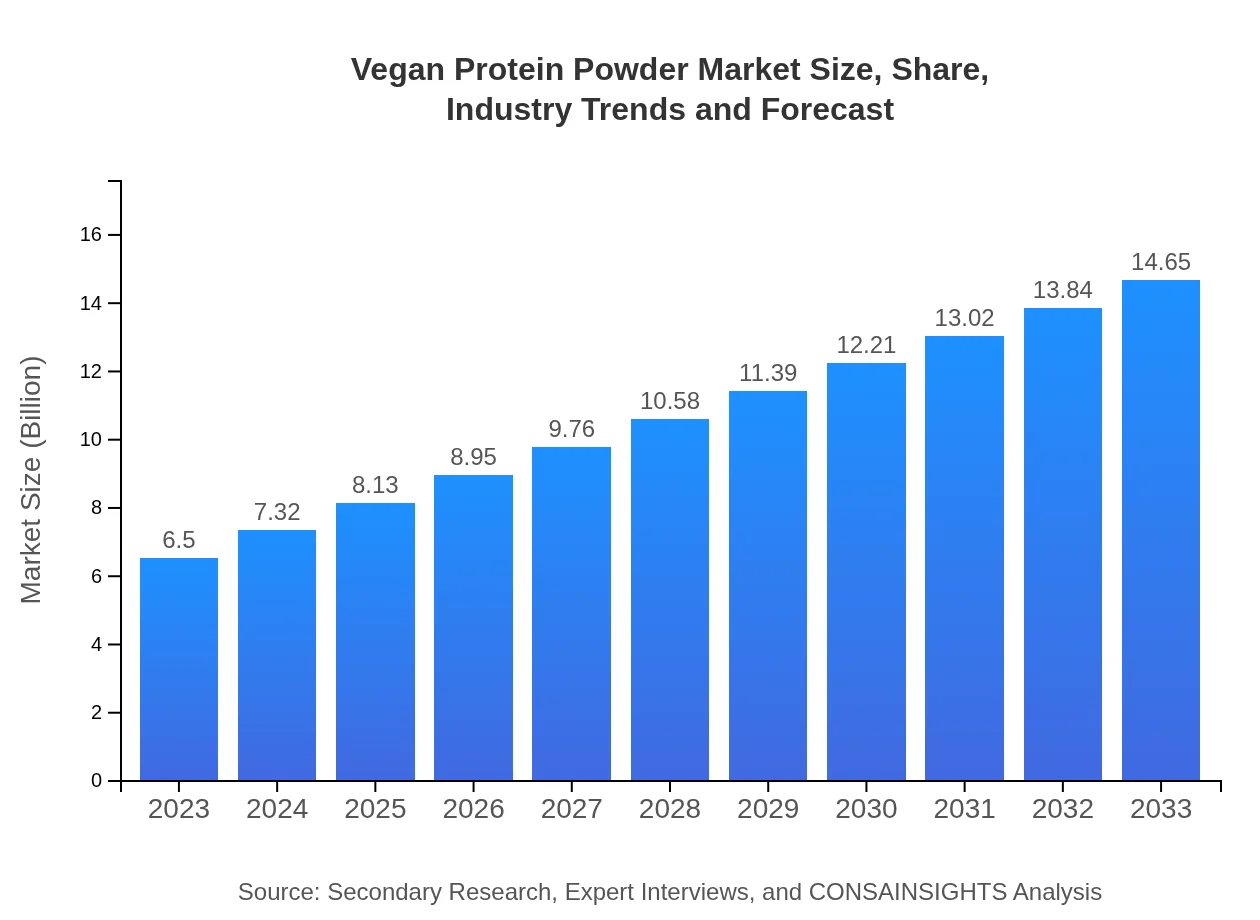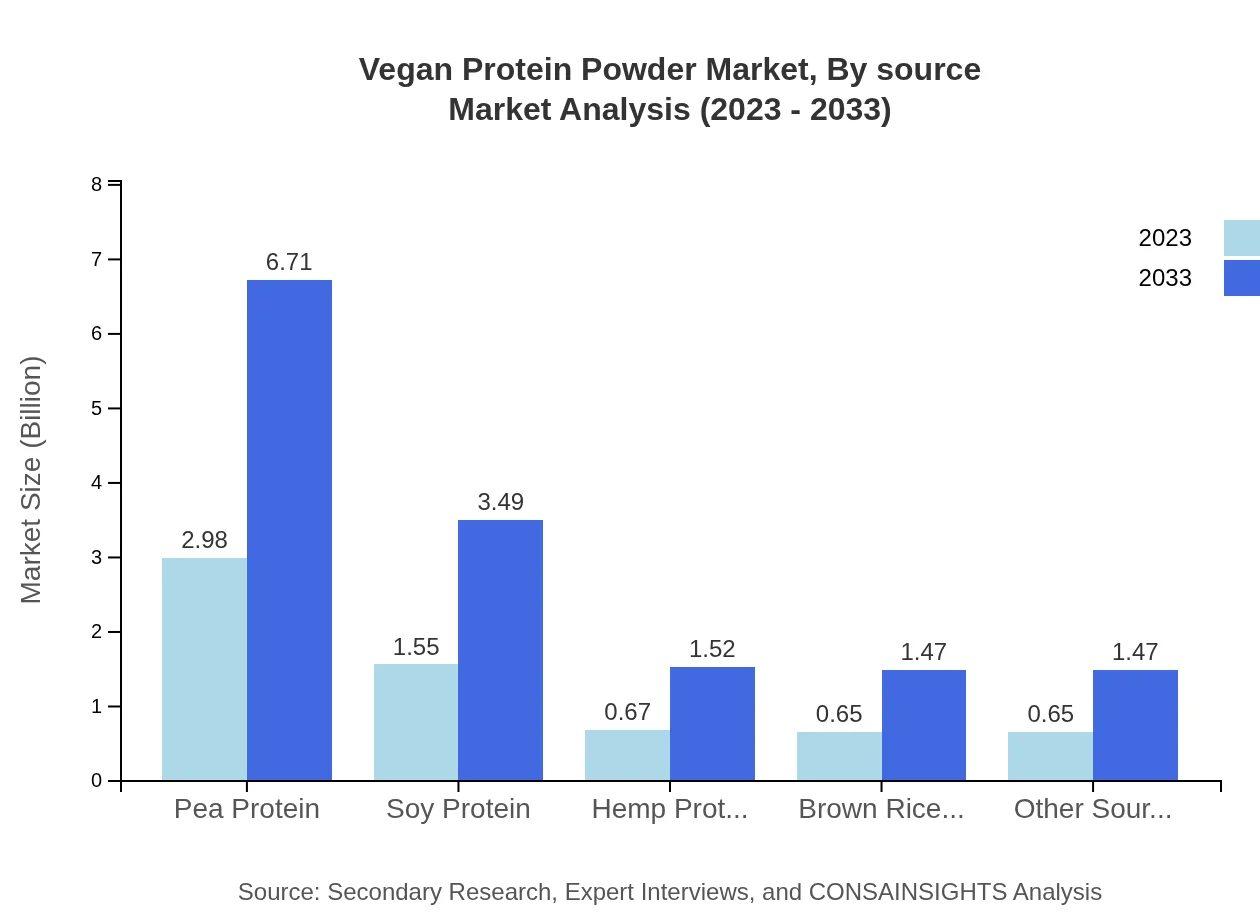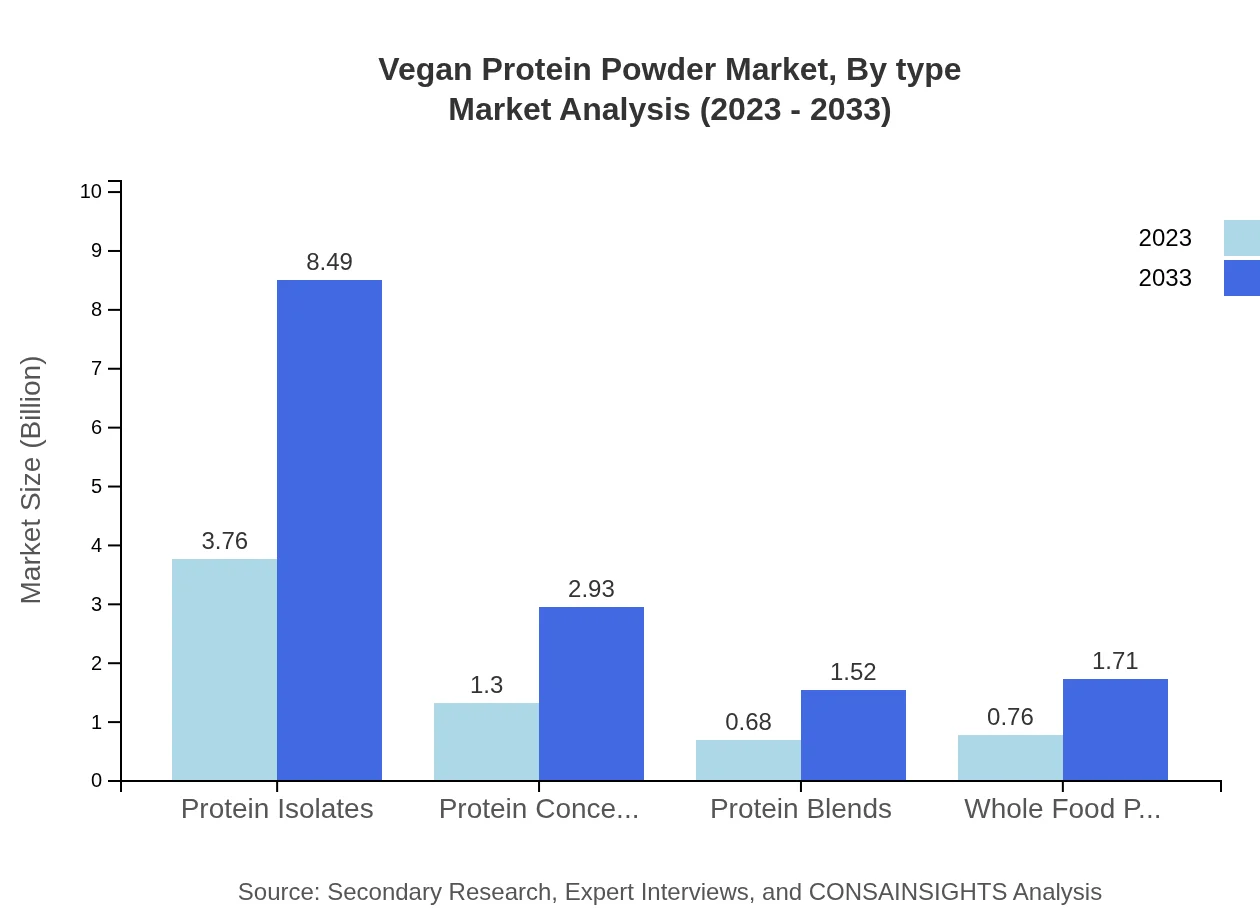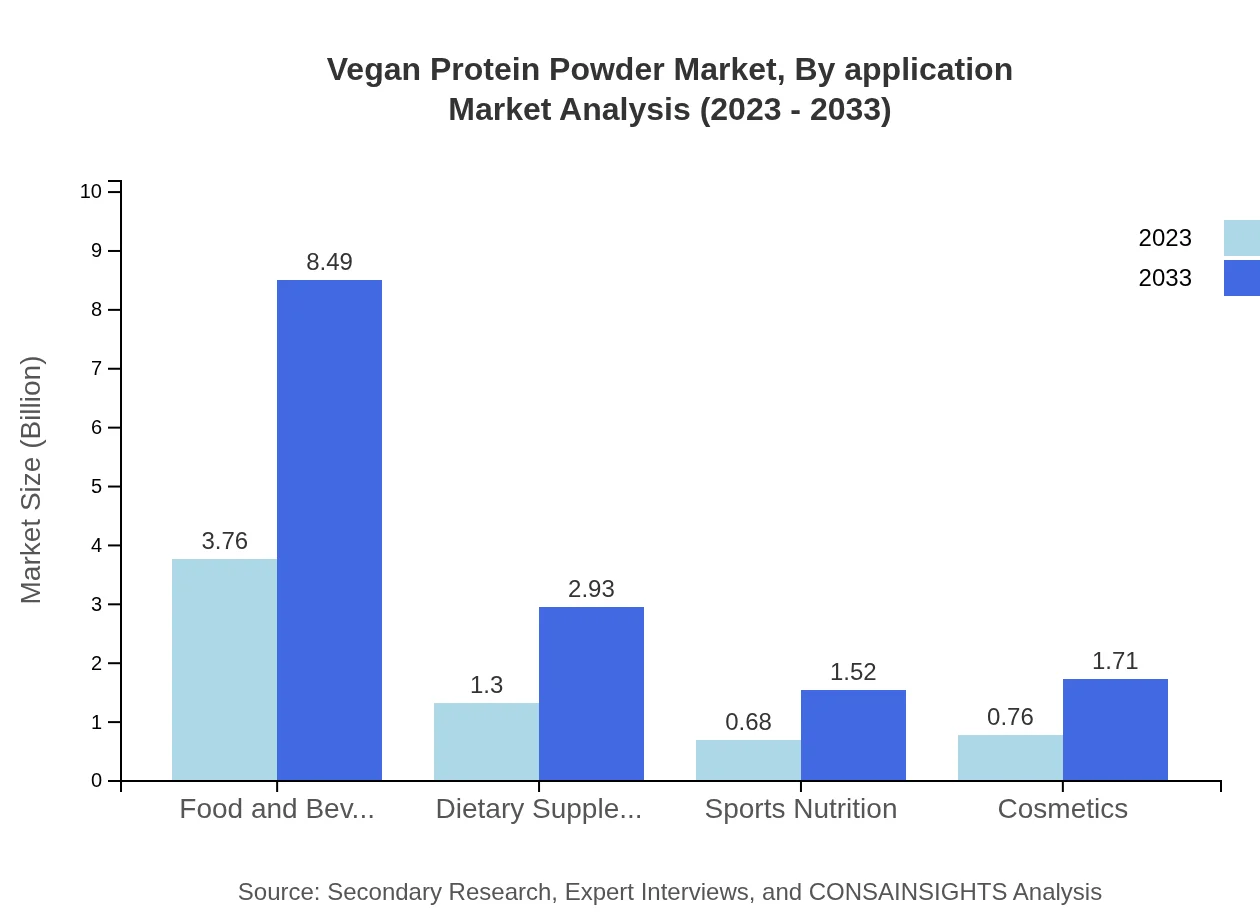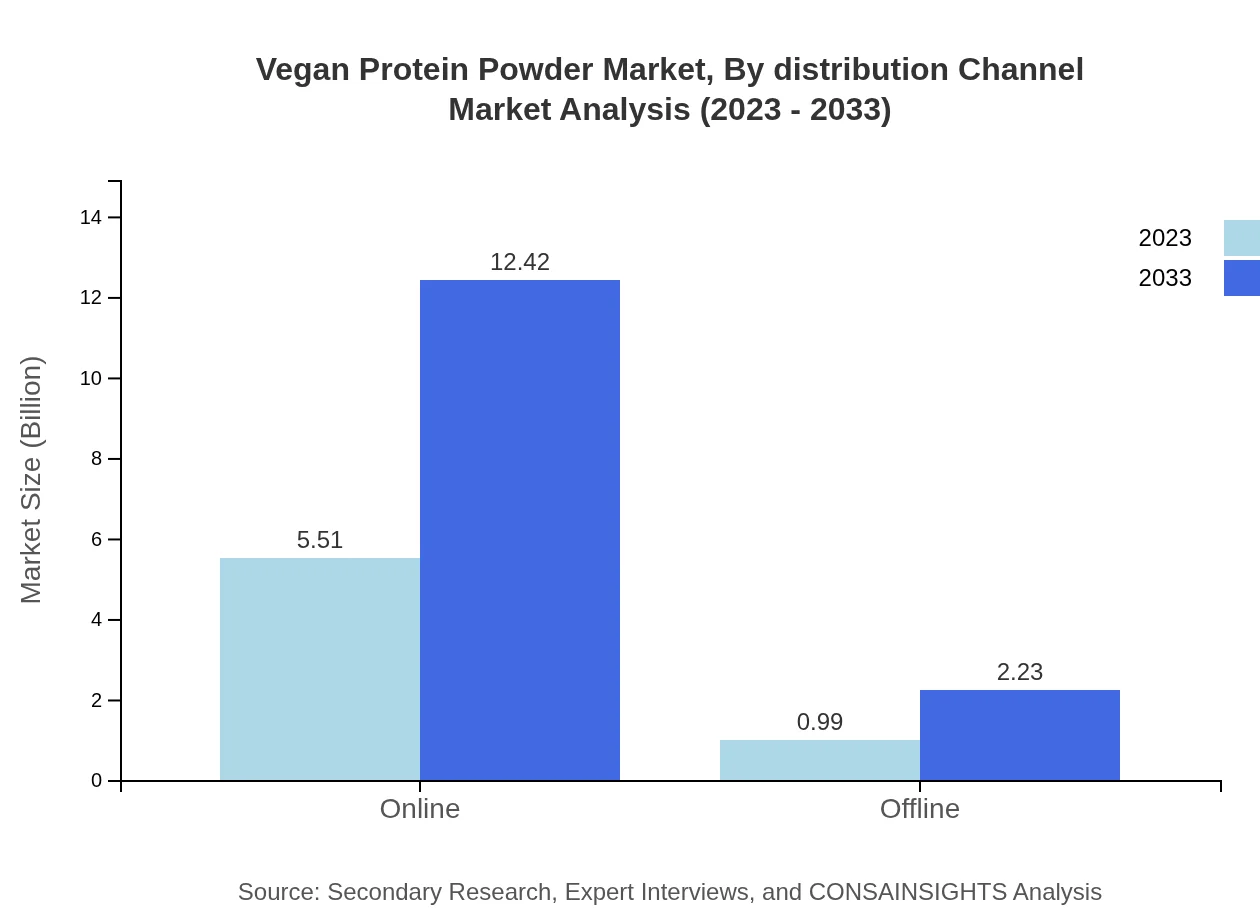Vegan Protein Powder Market Report
Published Date: 31 January 2026 | Report Code: vegan-protein-powder
Vegan Protein Powder Market Size, Share, Industry Trends and Forecast to 2033
This report provides an extensive analysis of the Vegan Protein Powder market, detailing current conditions, market size, growth rates, trends, and forecasts from 2023 to 2033. Insights into regional performance and key players in the industry will also be highlighted.
| Metric | Value |
|---|---|
| Study Period | 2023 - 2033 |
| 2023 Market Size | $6.50 Billion |
| CAGR (2023-2033) | 8.2% |
| 2033 Market Size | $14.65 Billion |
| Top Companies | Vega, Garden of Life, Orgain, Sunwarrior |
| Last Modified Date | 31 January 2026 |
Vegan Protein Powder Market Overview
Customize Vegan Protein Powder Market Report market research report
- ✔ Get in-depth analysis of Vegan Protein Powder market size, growth, and forecasts.
- ✔ Understand Vegan Protein Powder's regional dynamics and industry-specific trends.
- ✔ Identify potential applications, end-user demand, and growth segments in Vegan Protein Powder
What is the Market Size & CAGR of Vegan Protein Powder market in 2023?
Vegan Protein Powder Industry Analysis
Vegan Protein Powder Market Segmentation and Scope
Tell us your focus area and get a customized research report.
Vegan Protein Powder Market Analysis Report by Region
Europe Vegan Protein Powder Market Report:
The European market for vegan protein powder is forecasted to rise from $1.65 billion in 2023 to $3.72 billion by 2033. Countries like Germany, the UK, and France are leading the charge towards plant-based proteins as consumers increasingly shift to healthier lifestyles. The market benefits from stringent regulations promoting natural products, enabling better consumer trust.Asia Pacific Vegan Protein Powder Market Report:
In the Asia Pacific region, the vegan protein powder market was valued at $1.30 billion in 2023 and is projected to grow to $2.94 billion by 2033. The growth is driven by increasing urbanization, higher disposable incomes, and a growing inclination towards plant-based diets, particularly in countries like India and China, where vegetarianism is prevalent. Manufacturers are also targeting younger populations with effective marketing and product innovation.North America Vegan Protein Powder Market Report:
North America presents the largest market for vegan protein powders, with a valuation of $2.35 billion in 2023, growing to $5.30 billion by 2033. The U.S. and Canada have shown heightened awareness of health and wellness, becoming early adopters of vegan dietary trends. This growth can be attributed to the wellness-focused lifestyle of consumers and a high prevalence of sports nutrition.South America Vegan Protein Powder Market Report:
The South American vegan protein powder market is expected to increase from $0.35 billion in 2023 to $0.80 billion by 2033. The rise in health-conscious consumers and fitness enthusiasts has created a demand for protein supplements. Argentina and Brazil lead the consumption trends, with an emerging focus on organic and natural sources.Middle East & Africa Vegan Protein Powder Market Report:
The Middle East and Africa market was valued at $0.84 billion in 2023, forecasted to reach $1.89 billion by 2033. There is a growing interest in health and fitness, alongside an increasing number of vegan and vegetarian choices in this region. Market penetration continues with health clubs and chain gyms promoting plant-based nutrition.Tell us your focus area and get a customized research report.
Vegan Protein Powder Market Analysis By Source
The market comprises several sources, with pea protein dominating the landscape with a 45.8% share in 2023, set to grow to 45.8% by 2033. Other significant sources include soy (23.8%), hemp (10.38%), and brown rice (10.02%). The demand variations are influenced by factors such as allergies, taste preferences, and nutritional profiles. Protein isolates are expected to experience the highest growth due to their high protein content and versatility.
Vegan Protein Powder Market Analysis By Type
Vegan Protein Powders are classified into Protein Isolates, Concentrates, and Blends. In 2023, protein isolates held the largest market value at $3.76 billion, set for $8.49 billion by 2033. Concentrates follow with a market size of $1.30 billion in 2023 and expected growth to $2.93 billion. Blends’ market valuation is growing steadily, aligning with the trend toward more versatile protein sources.
Vegan Protein Powder Market Analysis By Application
The application segments include Food & Beverage, Dietary Supplements, Sports Nutrition, and Cosmetics. The Food & Beverage sector accounts for the largest share, making up 57.91% of the market in 2023. Dietary Supplements follow at 20.02%, with Sports Nutrition and Cosmetics having respective shares of 10.4% and 11.67%. These segments reflect the diverse utility of vegan protein powders across various consumer lifestyles.
Vegan Protein Powder Market Analysis By Distribution Channel
The distribution channels are classified into online and offline sales. The online market holds a dominating share at 84.75%, valued at $5.51 billion in 2023, projecting to $12.42 billion by 2033. The offline channel, while smaller, encompasses retailers and health food stores, with a market value of $0.99 billion in 2023, expected to reach $2.23 billion, reflecting changing shopping behaviors.
Vegan Protein Powder Market Trends and Future Forecast
Tell us your focus area and get a customized research report.
Global Market Leaders and Top Companies in Vegan Protein Powder Industry
Vega:
A leader in plant-based nutrition, Vega offers a wide range of vegan protein powders that emphasize clean, organic ingredients.Garden of Life:
Known for its commitment to clean and organic products, Garden of Life's vegan protein powders are popular among health-conscious consumers.Orgain:
Orgain focuses on nutritious, high-quality protein powders that cater to various dietary restrictions, featuring vegan options popular among athletes.Sunwarrior:
Sunwarrior offers an array of plant-based protein products aimed at athletes and fitness enthusiasts, with a strong focus on sustainability.We're grateful to work with incredible clients.









FAQs
What is the market size of vegan protein powder?
The vegan protein powder market is valued at approximately $6.5 billion in 2023, with a projected CAGR of 8.2% leading up to 2033, indicating robust growth driven by increasing consumer awareness and demand for plant-based nutrition.
What are the key market players or companies in the vegan protein powder industry?
Key players in the vegan protein powder market include industry leaders like Orgain, Vega, Garden of Life, Sunwarrior, and Nutiva. These companies are significant for their innovative product lines and strong market presence, catering to growing consumer preferences for sustainable and healthy protein options.
What are the primary factors driving the growth in the vegan protein powder industry?
The growth of the vegan protein powder market is propelled by rising health consciousness, increasing veganism and vegetarianism, the demand for sustainable food sources, and the proliferation of fitness-related lifestyles aiming for plant-based protein options.
Which region is the fastest Growing in the vegan protein powder market?
The Asia Pacific region is emerging as the fastest-growing market for vegan protein powder, expecting to rise from $1.30 billion in 2023 to $2.94 billion by 2033, influenced by rising health awareness and dietary shifts toward plant-based nutrition.
Does ConsaInsights provide customized market report data for the vegan protein powder industry?
Yes, ConsaInsights offers customized market reports tailored to the specific needs of clients in the vegan protein powder industry, ensuring access to detailed analyses, forecasts, and insights relevant to their business objectives.
What deliverables can I expect from this vegan protein powder market research project?
The deliverables from the vegan protein powder market research project will include comprehensive market analysis, segmentation data, growth forecasts, competitive landscapes, and strategic recommendations to inform your business decisions in the evolving plant-based nutrition sector.
What are the market trends of vegan protein powder?
Current trends in the vegan protein powder market include increasing innovation in product formulations, a growing emphasis on sustainability in sourcing, rising demand for personalized nutrition, and the expansion of online retail channels to enhance accessibility for consumers.

